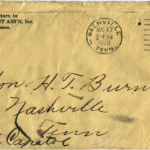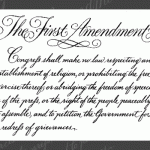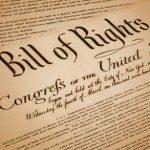Freedom of Religion is the first of our natural rights acknowledged in the First Amendment and limits government’s power to establish an official religion or interfere with a citizen’s exercise of religion. This is a recognition of freedom of religion, not freedom from religion. The first ten amendments to the US Constitution are referred to […]
A Mom’s Note, A Son’s Vote and the Nineteenth Amendment
Ratification of the Nineteenth Amendment to the US Constitution guaranteed the right to vote for women across the United States. Constitutional studies usually focus on the Supreme Court and its opinions. This approach often loses the personal stories of the real people behind the Constitution’s every word. The tale of Febb Ensminger Burn and her […]
Amendment I to the US Constitution: An Overview
The US Constitution grants enumerated powers to the central government. The drafters believed enumerating the powers limited the government. This was the argument Federalists made based upon an accepted rule for interpreting legal documents: Expressio unius est exclusio alterius (“the express mention of one thing excludes all others”). With that principle in mind, the government could not […]
Bill of Rights of the US Constitution: Promise Made, Promise Kept
The first ten amendments to the US Constitution are known collectively as the Bill of Rights. These amendments limit the power of the federal government. By virtue of the 14th Amendment, most government restrictions in the Bill of Rights apply to the states as well. The Constitution was a grant of power to the central […]
Article V of the US Constitution: Amendments
The Founding Fathers worked hard to come up with a Constitution that would stand the test of time. They had both the foresight and humility to know that with changing times there would be a need to change the charter for the US government. Beyond that, the Declaration of Independence had asserted the People possessed […]










